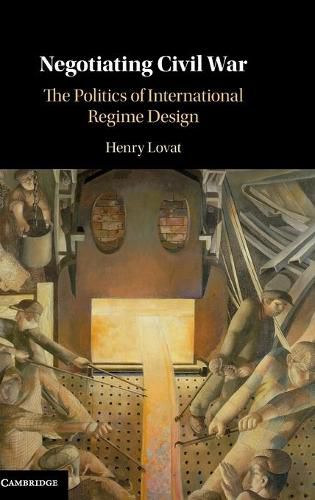Readings Newsletter
Become a Readings Member to make your shopping experience even easier.
Sign in or sign up for free!
You’re not far away from qualifying for FREE standard shipping within Australia
You’ve qualified for FREE standard shipping within Australia
The cart is loading…






Civil war has been a fact of political life throughout recorded history. However, unlike inter-state wars, international law has not traditionally regulated such conflicts. How then can we explain the post-1945 emergence and evolution of international treaty rules regulating the conduct of internal armed conflict: the ‘Civil War Regime’? Negotiating Civil War combines insights derived from Realist, Rationalist, Liberal, and Constructivist approaches to International Relations to answer this question, revisiting the negotiation of the 1949 Geneva Conventions, the 1977 Additional Protocols, and the 1998 Rome Statute of the International Criminal Court. This study provides a rigorous, critical account of the making of the Civil War Regime. Sophisticated and persuasive, it illustrates the complex interplay of material, ideational, social, and strategic factors in shaping these rules with important lessons for the making and unmaking of international law in a rapidly shifting international political, economic, and security environment.
$9.00 standard shipping within Australia
FREE standard shipping within Australia for orders over $100.00
Express & International shipping calculated at checkout
Civil war has been a fact of political life throughout recorded history. However, unlike inter-state wars, international law has not traditionally regulated such conflicts. How then can we explain the post-1945 emergence and evolution of international treaty rules regulating the conduct of internal armed conflict: the ‘Civil War Regime’? Negotiating Civil War combines insights derived from Realist, Rationalist, Liberal, and Constructivist approaches to International Relations to answer this question, revisiting the negotiation of the 1949 Geneva Conventions, the 1977 Additional Protocols, and the 1998 Rome Statute of the International Criminal Court. This study provides a rigorous, critical account of the making of the Civil War Regime. Sophisticated and persuasive, it illustrates the complex interplay of material, ideational, social, and strategic factors in shaping these rules with important lessons for the making and unmaking of international law in a rapidly shifting international political, economic, and security environment.